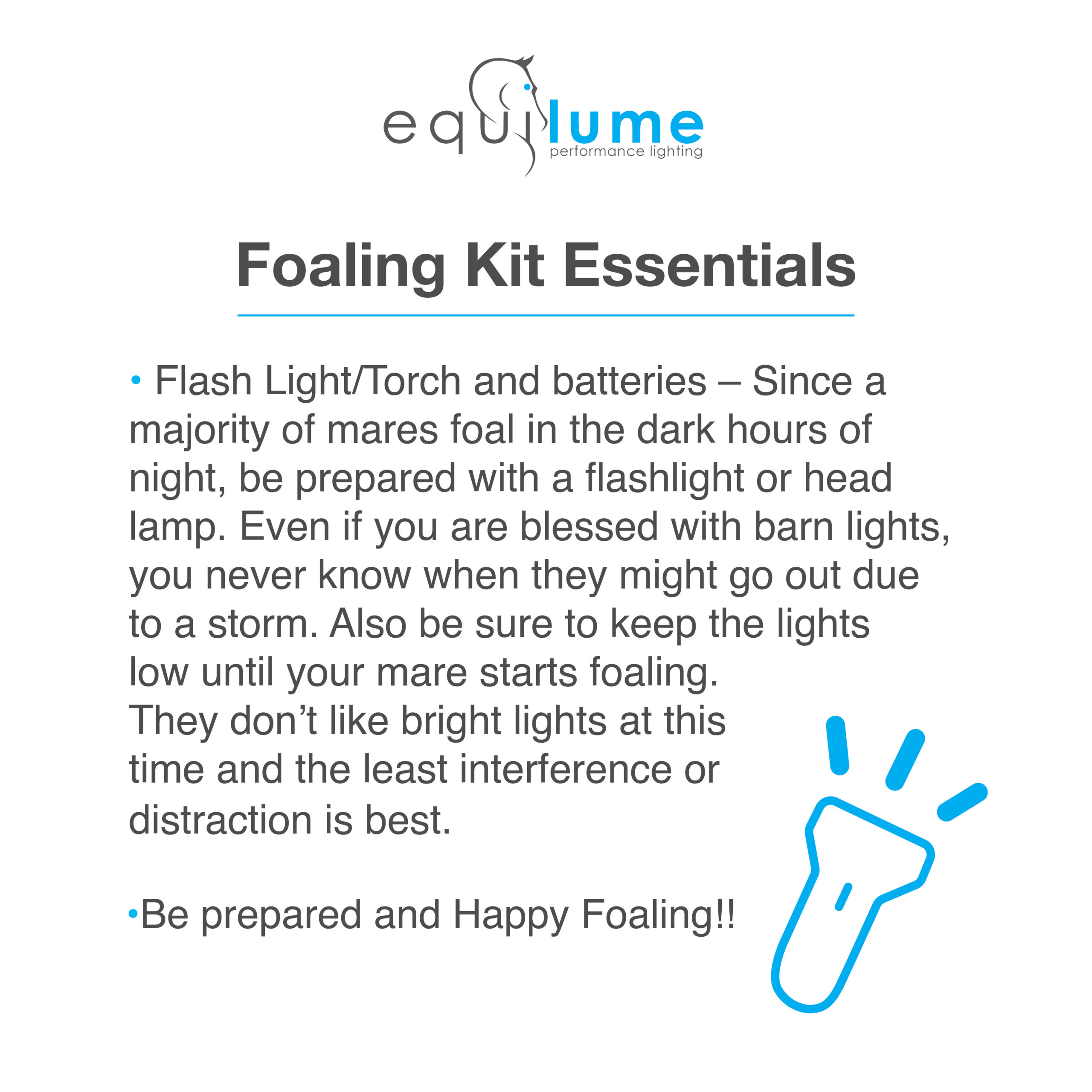
Foaling Kit Essentials

No matter where in the world you’re located, you’ll find yourself in need of some basic essentials when it comes to foaling time. Whether you’re the kind of breeder who likes to assist, or let your broodmares do what they do best on their own, you should have a foaling kit well-stocked and ready to go several weeks before your mare’s expected due date. Keep in mind that a normal gestation for a horse is between 320 and 370 days. Having key items on hand well before your mare presents signs of foaling means less scrambling last minute to acquire anything you’ll need… setting you up for success and a healthy mare and foal.
Check that you have all you need against our list below







